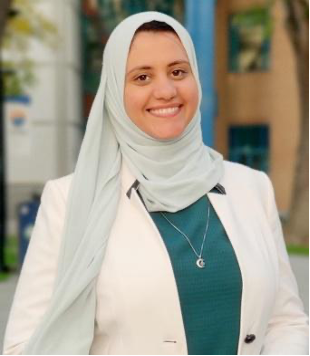Social Media and Global Citizenship: Navigating Responsibility in the Digital Age

In the era of interconnectedness facilitated by social media, the concept of global citizenship has taken on new dimensions. Individuals around the world are increasingly grappling with their responsibility toward addressing pressing global issues such as wars, natural disasters, social injustice and poverty. Moreover, the role of social media in fostering global solidarity and awareness cannot be overstated. But how can we concretely express this responsibility, and what role does social media play in fostering global citizenship?
When considering ways to express responsibility toward global issues, there are varied perspectives on effective actions. Some advocate for sharing information and raising awareness on social media platforms, while others emphasize the importance of engaging in tangible actions such as volunteering, donating and supporting sustainable practices.
Social media emerges as a powerful tool in supporting global citizenship, serving as both a platform for awareness and action. It provides a space for individuals to connect, share stories and mobilize for change on a global scale. As the author Dave Willis once said, “Don’t use social media to impress people; use it to impact people.” This highlights the transformative potential of social media beyond mere self-promotion. Creating an impact involves undertaking small acts that contribute to a brighter future. It entails recognizing what needs to be addressed and taking the initiative to enact change. It involves daily actions driven by personal conviction rather than external requests. Social media serves as a platform for effecting change rather than merely seeking validation. It also possesses the ability to illuminate injustices and rally individuals toward action. It facilitates connections with like-minded individuals, empowering us to unite our voices and magnify our collective influence. By utilizing social media as a tool for positive change, individuals can make meaningful contributions to global issues and foster a more interconnected and compassionate world.
However, leveraging social media for global solidarity requires a sophisticated approach to avoid worsening conflicts. While it has the potential to foster empathy and understanding by humanizing global issues, it also carries the risk of amplifying divisive narratives and spreading misinformation. Therefore, individuals must exercise caution in the content they share and critically evaluate the sources of information.
When examining social media usage trends, there are notable gaps based on geographical location, demographic factors, and cultural contexts. Different platforms may be more popular in certain regions or among specific age groups, influencing the type of content consumed and shared. Moreover, individuals’ reactions to global events are influenced by countless factors, including personal experiences, cultural backgrounds and social identities. While some events may resonate more deeply with certain communities, others may receive less attention depending on their perceived relevance or proximity. Privacy concerns remain a prevalent issue in the realm of social media, with users expressing apprehensions about the collection and misuse of personal data. As individuals navigate the digital landscape, it is essential to prioritize privacy protection and advocate for transparent data practices from social media companies.
In conclusion, social media plays a pivotal role in shaping global citizenship in the digital age. While it offers unprecedented opportunities for awareness, activism and solidarity, it also presents challenges in navigating conflicts, misinformation, and privacy concerns. By harnessing the power of social media responsibly and amplifying diverse voices, individuals can contribute to building a more interconnected, empathetic, and equitable world for future generations.
Dina Saad, public relations specialist for the vice president of higher education at Mansoura University, is a PhD candidate in tourism studies at Mansoura University in Egypt. Dina is an active participant in various extracurricular activities. Apart from her role in PRSSA as an outreach coordinator from 2021 to 2023, Dina dedicated her time as the vice chair of finance for the Communications Inter-Club Council at CSUF’s College of Communications. She has successfully organized numerous events such as COMMWEEK, the First Convergence for the College of Communications at CSUF and the College of Communications Awards Ceremony. Dina is academically decorated with two master’s degrees, one in tourism studies from MU and another in mass communications and research theory from CSUF. Connect with Dina on LinkedIn for further professional dialogue.

